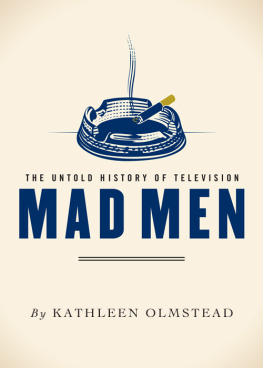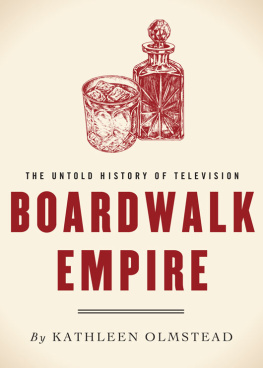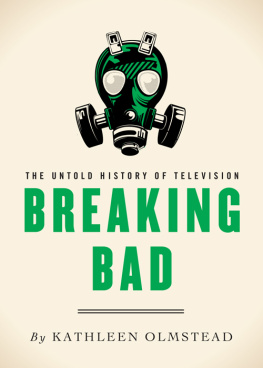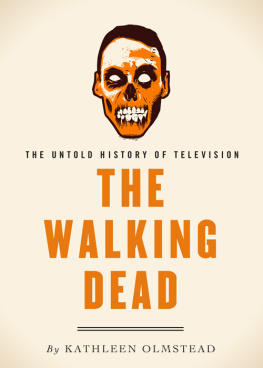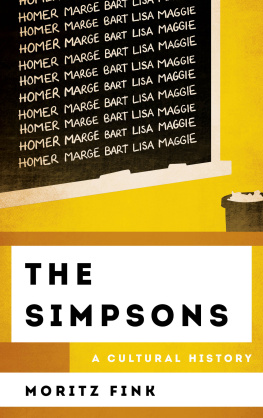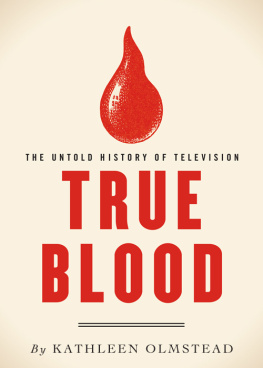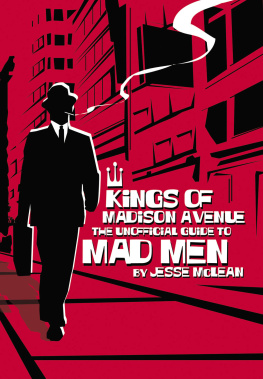Contents
In 2007, its first season, Mad Men won a slew of awards: Emmy Awards for best drama series, art direction, cinematography and writing; Golden Globe Awards for best drama series and lead actor (Jon Hamm); and Directors Guild and Writers Guild awards for best series. The show even won a Peabody Award in recognition for excellence in television broadcasting (the Peabody recognizes distinguished achievement and meritorious service by broadcasters). Not only was the show a critical darling, but it was also a ratings winner for its network, AMC. Its impact on culture in general cant be understated. By its second season, Mad Men even inspired the fashion industryboth Michael Kors and Banana Republic released lines featuring their take on the 1960s costumesand cocktail culture underwent yet another revival. Mad Menthemed parties became popular, with fan sites offering up fashion and food tips for your party, and books about the series were everywhere. This wasnt surprising: creator Matthew Weiners Mad Men not only looked sleek but quickly proved to have just as much steak as it had sizzle.
What remains surprising is that a distinctive show like Mad Men is not broadcast on HBO. Since 1997, with the broadcast of its first original drama series Oz, HBO, a premium cable television network, has positioned itself as the flagship network for quality adult, often risqu programming. It had already made a name for itself with groundbreaking comedy series, like Mr. Show and The Larry Saunders Show. In 1998, HBO added Sex and the City to their roster. Then in 1999, HBO established itself as the premier channel of American television with The Sopranos. Its streak of top-notch programming continued over the next decade with Band of Brothers, The Wire, The Corner, Six Feet Under, Deadwood and Big Love. But when Mad Men first aired on July 19, 2007, it appeared on AMC (formally known as American Movie Classics), a basic cable channel. This was even more remarkable when you consider that many members of the creative team who worked on Mad Men had previously worked on shows for HBOThe Sopranos in particular. But the truth was, not only did HBO pass on Mad Men, the network didnt even return Matthew Weiners call to say, No, thanks. Showtime, another premium cable station, also passed.
At the time, the majority of AMCs programming consisted of old Hollywood movies. Until Mad Men, AMC had never produced an original drama series. In the 90s, the network produced some reality programs and tried its hand at a comedy with Remember WENN, a sitcom about a Pittsburgh radio station set in the 1930s. Taking on a drama, especially a period piece with no bankable stars, was a financial risk, and it was hard to predict whether it would attract an audience. Creating the world of 1960s Manhattan and its suburbs would be a costly venture, but the executives at AMC wanted to enter the drama field with something distinctive. Its unclear whether AMC knew just how meticulous Weiner would be with each and every period detail; they would soon find out. So, AMC took a chance and picked up the pilot episode of Mad Men, with Lions Gate Entertainment producing it. To get to this point, of course, a lot happened towards the shows development, and the driving force from beginning to end was Matthew Weiner.
Matthew Weiner was born in Baltimore, Maryland, in 1965, the third of four children. His father, Leslie, was a neuroscientist, and his mother, Judith, studied law, although she never practised. When Weiner was nine years old, his family moved to Los Angeles when his father took on a position at the University of Southern California (in fact, the neurological center at the USC bears his name). After high school Weiner attended Wesleyan in Connecticut, where he studied philosophy and literature in what Weiner calls an unusual program; the instructors didnt give marks, only comments on students essays and discussions. After graduating in 1987, he enrolled in the masters program in film at USC with, Weiner admits, a little help from his father. In film school, Weiner, as someone from a family of overachievers, finally felt he could excel.
Weiner came from a family of storytellers. Throughout his formative years, he discussed art and politics and film, Hollywood classics in particular, with his parents and siblings. Weiner also loved listening to the stories of his parents childhoods, their romance and their subsequent marriage in 1959. He mythologized his parents histories. In many ways, they became his idols and inspiration. His parents grew up in New York, and although they apparently had little good to say about their lives there, Weiner regarded the early years of their marriage and that era as a magical time.
Shortly after graduating from USC, Weiner married Linda Brettler, an architect, and started working in television. He worked in production for A&Es Biography series and then started writing for various comedy shows, such as Party Girl, The Naked Truth and the marvellous and underappreciated Andy Richter Controls the Universe, on which he was also a producer. He was then hired as a writer and producer for Becker, a sitcom about a disgruntled doctor played by Ted Danson. Becker lasted six seasons and spent a lot of that time in the Nielsen Top Ten. During this time, however, Weiner started to feel a sense of dissatisfaction. Even though he had a good job, a happy marriage and children, he asked himself if this was all he could accomplish. With his wifes encouragement, he wrote a spec scripta script that he would send out as a calling card to producersabout an advertising agency set in early 1960s Manhattan. Thus, Mad Men was born. All of his wondering, Is this it? and What am I missing? came clearly through as he developed the script.
In the early 2000s, the most critically acclaimed and talked-about show on television was The Sopranos. Before The Sopranos, multi-character dramas were not unusual, although most were police, lawyer or hospital dramas. Having a storyline centred on a mob boss was unusual. But to make the protagonist sympathetic or, at least, someone that we cared about, was daring. The story of Tony Soprano, his family and his mob family pushed the boundaries of how we defined heroes and villains and who deserved our sympathy. The audience rooted for criminals, murderers and violent, self-absorbed mafia members living in New Jersey. Weiner sent David Chase, the creator and show runner of The Sopranos, his Mad Men script. Chase was so impressed that he brought Weiner on board as a writer and then producer in 2004. In the shows final season, Weiner co-wrote several memorable episodes. Soprano Home Movies has Tony visiting a cabin with his family and contains the perhaps the most astonishing fist fight of the series (and that is saying something). In Kennedy and Heidi, Tony visits Las Vegas after an incident that we wont reveal (so as not to spoil it). Both of these episodes are notable in that they added dimensions to the story and characters, especially Tony Soprano. Considering that the series was nearing its end and could easily have rested on its many laurels, its impressive that the producers continued to delve and explore the complicated Tony Soprano and his lifestyle.
As The Sopranos wrapped its final season, Weiner pulled out his

